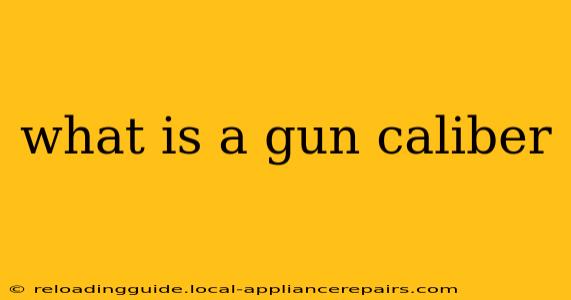Gun caliber refers to the diameter of the projectile, typically a bullet, that a firearm uses. It's a crucial specification for any firearm, influencing everything from the weapon's power and recoil to the type of ammunition it can use. Understanding gun caliber is essential for anyone interested in firearms, whether for hunting, sport shooting, self-defense, or simply understanding firearms terminology.
How is Gun Caliber Measured?
Caliber is measured in different ways, depending on the firearm type and the specific measurement system used. The most common methods include:
-
Inches: This is a common measurement system, particularly in the United States. For example, a .38 Special revolver uses a bullet with a diameter of 0.38 inches. This measurement is typically taken from the bullet's diameter, specifically across the lands (the raised portions of the gun barrel's rifling).
-
Millimeters: This is the metric system equivalent and increasingly common globally. For example, a 9mm Parabellum pistol uses a bullet with a diameter of 9 millimeters.
-
Gauge (for shotguns): Shotgun calibers are expressed differently. Gauge refers to the number of lead balls of the bore diameter that would weigh one pound. For example, a 12-gauge shotgun means that 12 lead balls of that bore diameter would weigh one pound. Therefore, a 12-gauge shotgun has a larger bore diameter than a 20-gauge shotgun.
It's important to note that the caliber of a firearm doesn't always precisely match the bullet's diameter. The manufacturing process and the presence of rifling within the barrel can slightly affect the actual measurement. Thus, the specified caliber is a nominal measurement, representing the approximate size.
Why is Gun Caliber Important?
Understanding gun caliber is crucial for several reasons:
-
Ammunition Compatibility: The most critical aspect is ensuring that you use the correct ammunition for your firearm. Using the wrong caliber can cause serious damage to the firearm, potentially leading to injury or death.
-
Power and Recoil: Caliber significantly impacts the power and recoil of a firearm. Larger calibers generally generate more power and higher recoil.
-
Ballistics: Caliber directly influences the bullet's trajectory, velocity, and range.
-
Application: Different calibers are suitable for different applications. For example, smaller calibers are often used in target shooting and self-defense handguns, while larger calibers are more common in hunting rifles.
-
Legal Considerations: In many jurisdictions, firearms regulations and licensing requirements are based on caliber.
Common Gun Calibers
There's a vast range of gun calibers, but some are more common than others. Some examples include:
- Handguns: 9mm, .45 ACP, .38 Special, .357 Magnum, .22 LR
- Rifles: .223 Remington, .308 Winchester, .30-06 Springfield, 7.62x39mm, 5.56x45mm
- Shotguns: 12 gauge, 20 gauge
Conclusion
Gun caliber is a fundamental characteristic of any firearm, influencing its functionality, power, and application. Understanding its measurement and significance is essential for safe and responsible firearms handling, ownership, and usage. Always prioritize safety and consult reliable resources for accurate information before handling any firearm. This information is for educational purposes only and should not be considered a substitute for professional training or instruction.

